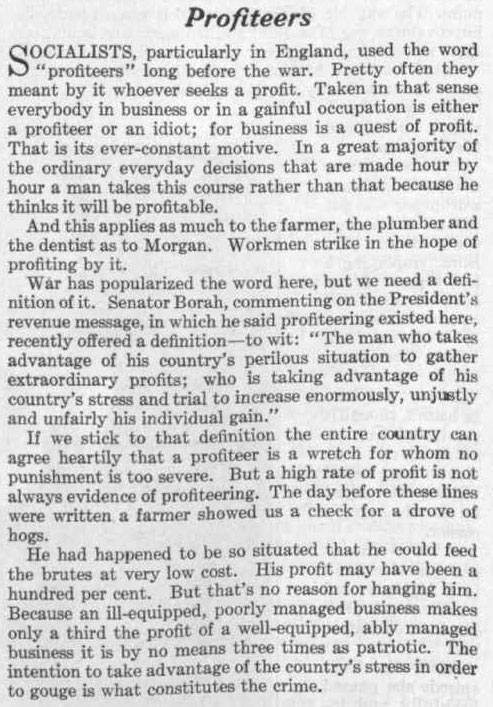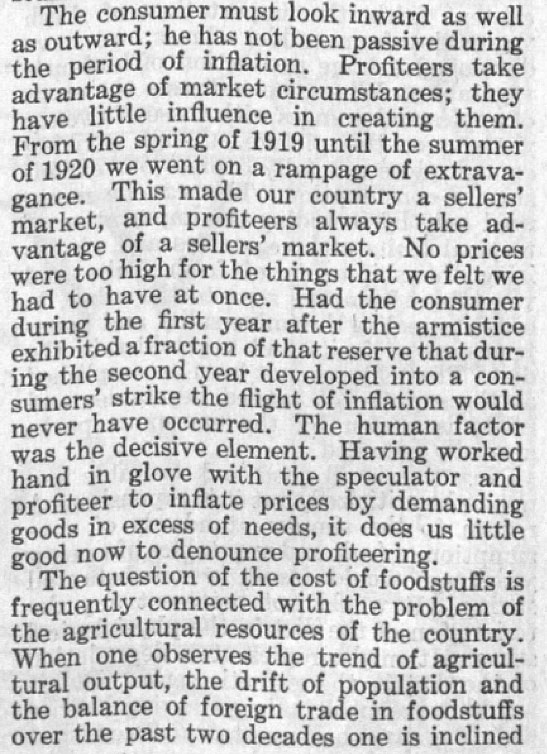Pandemics, Profits, and Price Gouging
The first case of coronavirus in America was reported in January 2020. The first death occurred the next month. But for many Americans, the pandemic only got real when the toilet paper disappeared from store shelves. We understand shortages. And we know they’re usually accompanied by higher prices. In the past month, consumers in several states have reported sharp price hikes for masks, hand sanitizer, disinfectant wipes, and other necessities.
A store in Philadelphia doubled the price of a pack of face masks to $50. On Amazon, a Florida man offered fifteen N95 face masks for $3,799. Texas state officials have received over 4,000 price-gouging complaints during the pandemic emergency.
Natural disasters always create opportunities to sell necessities at exorbitant prices. As long ago as 1666, merchants raised the price of fish 300 percent in the days following the great London fire. Following the San Francisco earthquake of 1906, the price of bread jumped from a nickel a loaf to a dollar. The price of ferry rides out of the city were jacked up to the 2020 equivalent of $1,500. The price to hire a wagon to move possessions out of the city jumped from $5 to $100.
More recently, after Hurricane Katrina, Mississippi officials received roughly 1,400 complaints a day about price gouging. After 2017’s Hurricane Harvey, some stores were selling cases of water for $99. Hotel owners tripled or quadrupled their room rates.
Business owners who sell vital supplies in an emergency deserve to make a profit. But when is it too much profit?
In 1918, a Post editorial differentiated between business owners making a profit and a profiteer “who takes advantage of his country’s perilous situation to gather extraordinary profits.” A profiteer uses his country’s stress and trial “to increase enormously, unjustly and unfairly his individual gain.” The editors concluded that “The intention to take advantage of the country’s stress in order to gouge is what constitutes the crime.”

But an article from the March 5, 1921, issue of the Post put some of the blame for price gouging on consumers’ irrational behavior: “No prices were too high for the things that we felt we had to have at once… Having worked hand in glove with the speculator and profiteer to inflate prices by demanding goods in excess of needs, it does us little good now to denounce profiteering.”

While few consumers need a dozen mega-packs of toilet paper, the question remains: Should anything be done about price gouging and profiteering, and if so, who should do it?
No federal laws prohibit the practice, though the Justice Department is asking Americans to report pandemic-related scams or frauds to the Disaster Fraud Hotline.
However, 44 states enforce laws against this form of profiteering. Some states allow businesses to raise prices temporarily from 10–30 percent in response to shortages and hoarding. Other states, though, practice zero tolerance for hiking prices in emergencies.
A group of 33 state attorneys general notified Amazon, Walmart, eBay, Facebook and Craigslist they must do a better job in removing “unconscionably priced critical supplies.” They wrote, “We believe you have an ethical obligation and duty to help your fellow citizens in this time of need by doing everything in your power to stop price gouging in real-time.”
However, business owners may disagree on what ethics oblige them to do. Some retailers and economists claim it actually serves several purposes, including signaling manufacturers and suppliers to increase production and distribution and helping ensure essential goods go where they are most needed. For example, if a drug store continues to sell face masks at their usual retail price, hoarders and panic-buyers could quickly clean them out. None would be left for later shoppers. By raising the price to a deterring level, merchants can continue to ensure needed products will remain available.
Another option is rationing, which might work, economists say, but it usually takes too long to set up a workable system. And government price controls would be defied by business owners.
Consumers, however, may not see the advantages of price gouging. They may only see businesses raising their prices because buyers have no option in an emergency. Yet grocery stores that held toilet paper to its usual retail price saw hoarders buying as much as they could fit into a shopping cart. Which is exactly the situation that “price gouging” is meant to prevent.
Featured image: Shutterstock